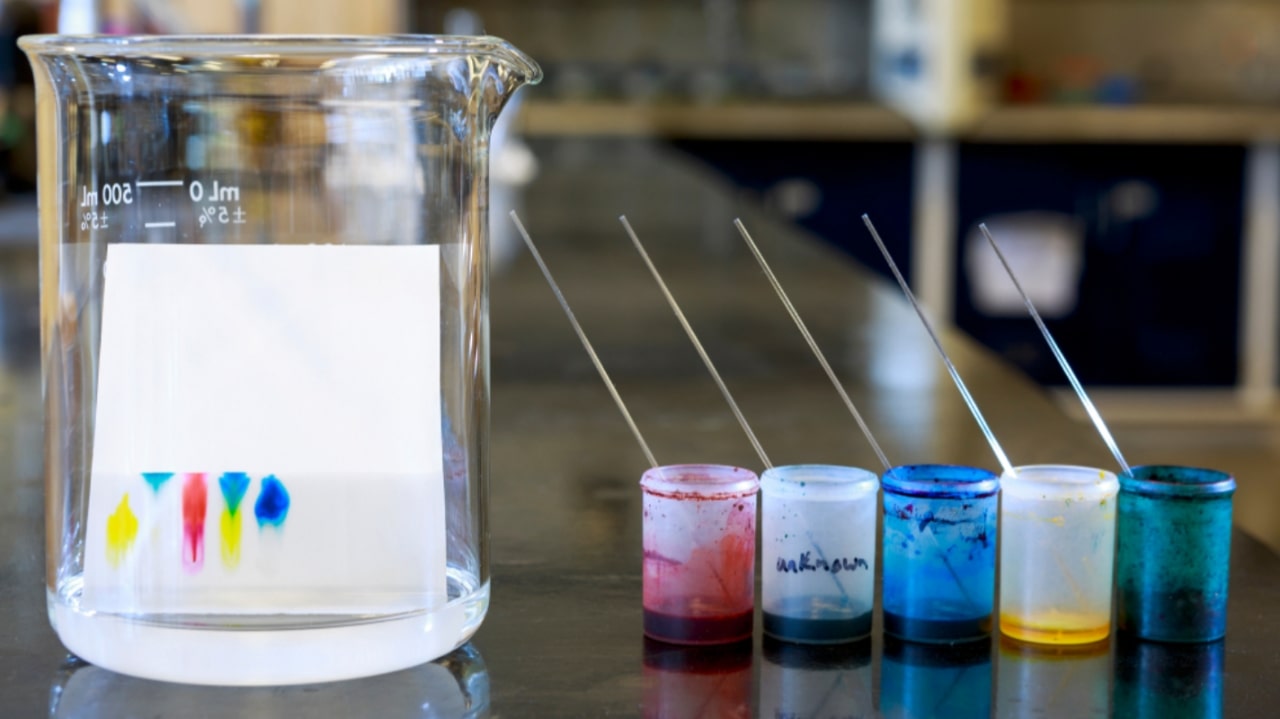Applications of Thin Layer Chromatography (TLC): Chromatography represents the most versatile separation technique and is readily available. Chromatography is defined as a technique of isolation and identification of components or compounds or mixtures into individual components by using the stationary phase and mobile phase. Plant materials are separated and purified by using various chromatographic techniques.
Thin Layer Chromatography (TLC)
Thin layer chromatography (TLC) is one of the most popular and simple chromatographic techniques used for the separation of compounds. TLC is being employed extensively in the standardization of herbal products.
Applications of Thin Layer Chromatography (TLC)
- It enables rapid analysis of herbal extracts with minimum sample cleanup requirement.
- It enables the quantification of chemical constituents.
- TLC can be used to identify natural products like; essential oils or volatile oil, fixed oil, glycosides, waxes, alkaloids, etc.
- For visualization of separated spots, no specialized detectors are required.
- It is widely used in separating multicomponent pharmaceutical formulations.
- TLC can be carried out with a minimal quantity of high expensive solvents thus making the process economical.
- It is used to purify herbal drug samples and direct comparison is done between the test sample and the standard sample.
- It is used in the detection of pesticides or insecticides in food and water.
- It is used in the food industry, to separate and identify colors, sweetening agents, and preservatives.
- It is used in the herbal cosmetic industry.
- TLC is used to separate non-volatile mixtures.
- It is used in the separation of Vitamins (vitamin E, vitamin D3, and vitamin A).
Make sure you also check our other amazing Article on : Factors Affecting the Stability of Herbal Medicines
